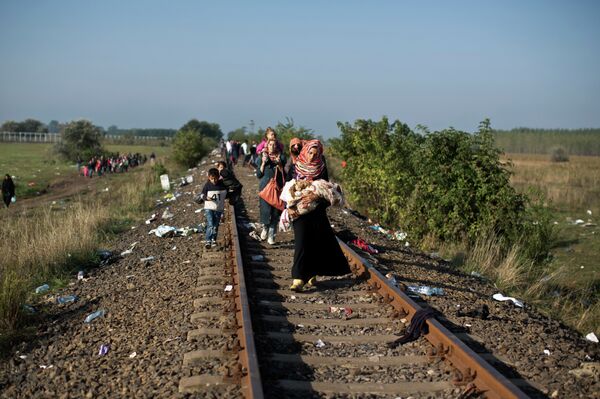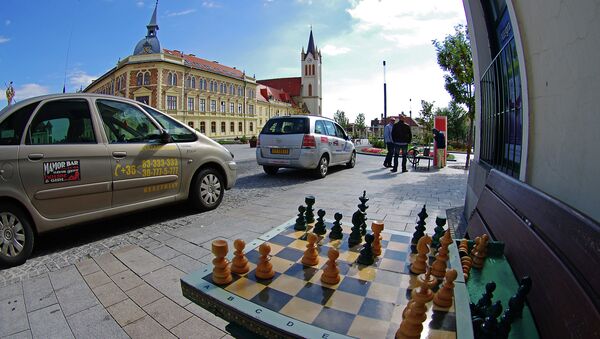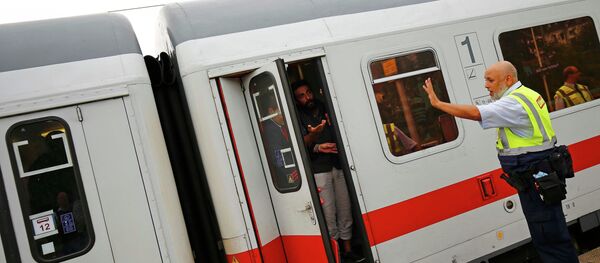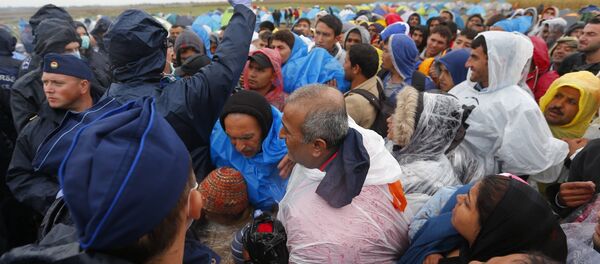A refugee crossing the Hungarian border near the village of Roszke is typically greeted by a crowd of taxi drivers, who ask the refugee to pay between 400 and 500 euros for a trip to Budapest and between 700 and 1000 euros — to Vienna or Munich through the territory of the Czech Republic and Slovakia.
A taxi rank is located approximately two kilometers away from the German-Austrian border.

If a refugee is short of money, taxi drivers will offer to take them to a Budapest railway station for about 200 euros.
According to the cabbies, "there are many volunteers at the Keleti railway station, and they will help them board a free-of-charge train to reach the border."
All those refugees who were lucky to arrive at the Hungarian capital all by themselves can turn to the taxi drivers based near a Budapest bus terminal.
The drivers usually explain to the refugees that the border with Austria is closed, and that they will have to pay 500 euros for a ride to Munich via Slovakian soil.
A Hungarian police spokesman was quoted by Ria Novosti as saying that "under the rules, all those who enter Hungary must register and apply for asylum." The spokesman added that the refugees' transportation, even the one that is implemented by volunteers on a free-of-charge basis, is punishable.
It is safe to assume, therefore, that Hungarian taxi drivers will continue to benefit from the escalating migration crisis in Europe despite reports that Hungary is due to close its border in the coming hours.
In connection to this, Former Hungarian Prime Minister Ferenc Gyurcsany was quoted by Ria Novosti as saying that "the laws of life are stronger than any legislation" and that "the refugees will always look for a loophole."




